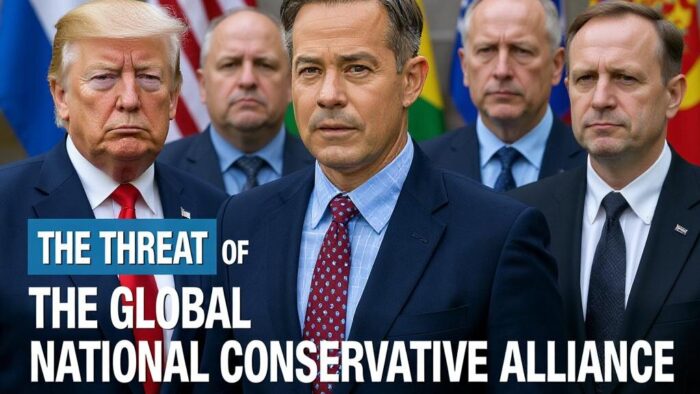Trump’s dismantling of Voice America operations has created unprecedented opportunities for rival powers to expand their global influence operations. On June 24, 2025, The New York Times reported that RT’s editor celebrated Trump’s “awesome decision” to shut down federally funded media outlets, while Chinese and Russian state media have rapidly expanded operations to commandeer communications space abandoned by the Americans across Africa, Asia, and beyond. The article begins:
America’s rivals celebrated as the Trump administration set out to dismantle its global influence and information infrastructure, including the media outlets that had helped market the United States as the world’s moral and cultural authority.The editor in chief of RT, the Kremlin-backed news network, crowed about President Trump’s “awesome decision” to shut down Voice of America, the federally funded network that reports in countries with limited press freedom. “Today is a holiday for me and my colleagues!” Hu Xijin, a former editor in chief of China’s state-run outlet Global Times, wrote that the paralysis of Voice of America and Radio Free Asia was “really gratifying” and, he hoped, “irreversible.” A top aide to Prime Minister Viktor Orban of Hungary posted that he “couldn’t be happier” about the administration’s move in February to gut the agency that distributed foreign media funding. Officials in Cambodia and Cuba also welcomed the cuts. In the months since, China, Russia and other U.S. rivals have moved to commandeer the communications space abandoned by the Americans. They have pumped more money into their own global media endeavors, expanded social outreach programs abroad and cranked up the volume when publicizing popular cultural exports.
Read more: https://www.nytimes.com/2025/06/24/business/media/us-china-russia-global-communications.html [Paywall]
Key Points
- Former Chinese state media editor Hu Xijin called the paralysis of Voice of America and Radio Free Asia “really gratifying” and hoped it would be “irreversible.”
- Russia’s Sputnik opened new offices in Ethiopia with plans for South Africa and Tanzania, while Turkey’s TRT started broadcasting in Somalia as part of Erdogan’s “Century of Turkey” vision.
- China has shifted strategy from government messaging to amplifying social media influencers and private entrepreneurs, then using state media to boost their content globally.
- The European Union stepped in with $6.2 million emergency support for Radio Free Europe as Britain created a soft-power council to fill America’s abandoned global communications role.
State Media Drives Global Influence Operations Worldwide
State media serve as critical instruments in global influence operations, with governments deploying their reach to shape international narratives and advance strategic interests.
Russia leverages platforms such as RT as a vehicle for coordinated digital campaigns and disinformation, and has recently launched a fake “Global Fact-Checking Network” to manipulate global discourse and legitimize Kremlin narratives. Iran’s IRIB propaganda network merges state media broadcasts with covert online operations, projecting regime messaging globally and employing psychological tactics to suppress dissent, a role intensified by IRIB’s use of forced confessions and its expansion into dozens of languages and regions. China’s strategy leverages expanding propaganda networks in Latin America and global influencer operations using veiled state media reporters and honeypots to embed pro-Beijing narratives across continents. Meanwhile, Turkey’s TRT faces legal scrutiny over FARA violations as it extends Ankara’s influence among diaspora communities and international audiences.
These cases illustrate how state media are increasingly weaponized as tools of soft power and information warfare, blurring the boundaries between journalism and propaganda to polarize societies and undermine democratic norms. Russian state media, for example, continue to adapt their tactics globally—using RT and Sputnik to amplify pro-Kremlin messages in Latin America, Africa, and the Middle East, even circumventing Western bans through mirror sites and local amplifiers, while Iran’s IRIB has grown into a global propaganda arm with a near monopoly on domestic broadcasting and a vast international presence, often broadcasting forced confessions and regime narratives in violation of international law.
External References:
-
Undermining Ukraine: How Russia widened its global information war in 2023
-
10 Things to Know About Tehran’s Propaganda Network, the Islamic Republic of Iran Broadcasting
Disclaimer
The Global Influence Operations Report (GIOR) employs AI throughout the posting process, including generating summaries of news items, the introduction, key points, and often the “context” section. We recommend verifying all information before use. Additionally, images are AI-generated and intended solely for illustrative purposes. While they represent the events or individuals discussed, they should not be interpreted as real-world photography.










